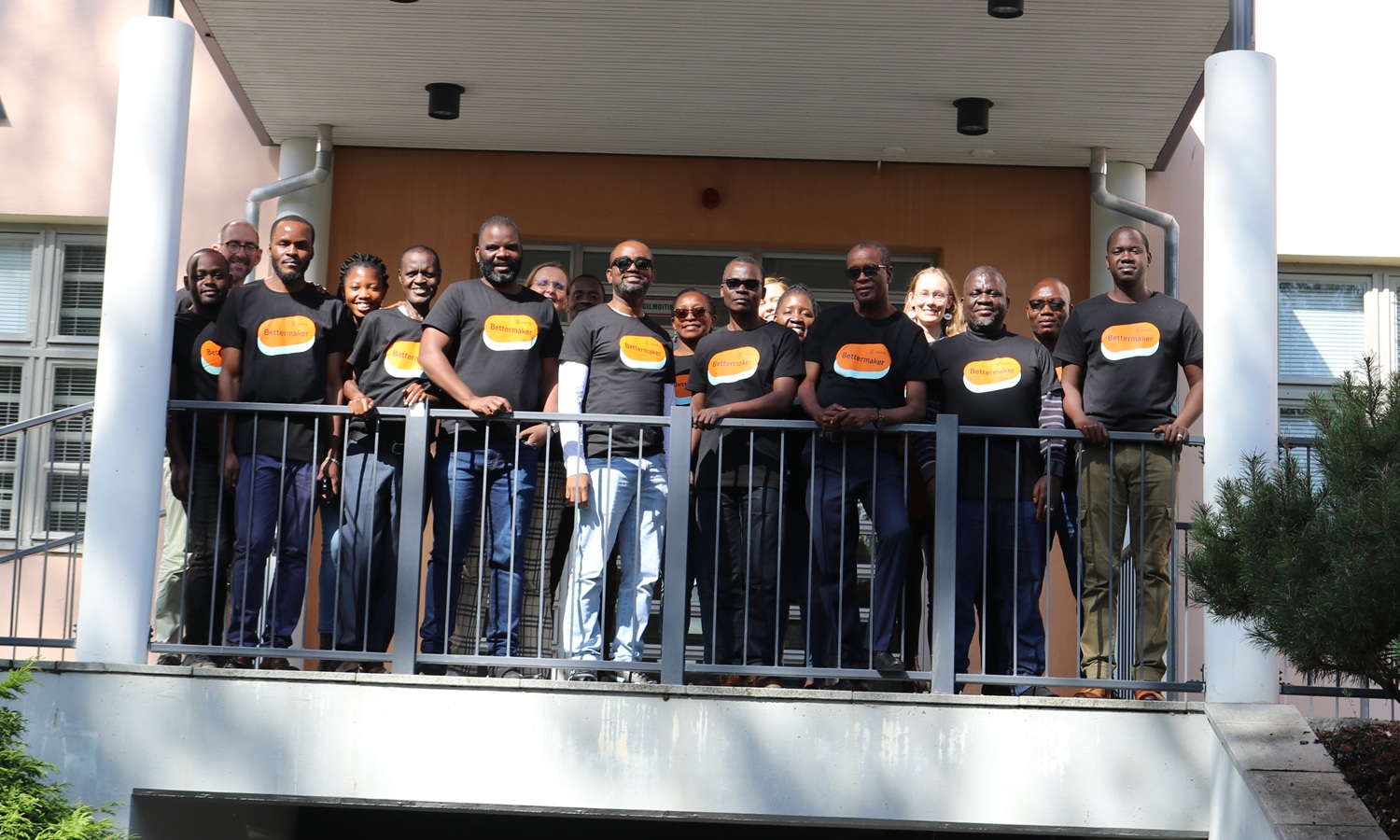Associate Professor
Carsten Nico Portefée Hjortsø
Department of Food and Resource Economics
University of Copenhagen
We aim to modernize curricula, enhance teacher competencies, and foster collaboration between higher education institutions (HEIs) and industry.

The project team at the Kick Starting workshop at HAMK, Finland in August 2023. Photo: Carsten Nico Portefée Hjortsø
The primary goal of the AgrGROW project is to transform agro-entrepreneurship education in Malawi and Uganda by integrating climate-smart agriculture and problem-based learning (PBL) methodologies. The project aims to modernize curricula, enhance teacher competencies, and foster collaboration between higher education institutions (HEIs) and industry.
By equipping graduates with 21st-century skills and entrepreneurial mindsets, AgrGROW seeks to address job creation and climate change challenges, ultimately contributing to sustainable economic growth and social development in Eastern and Southern Africa.
The project also aims to build a network-based learning ecosystem to support continuous innovation and capacity building.
The AgrGROW project is organized into five work packages, each led by a specific partner to ensure focused and efficient implementation. The methodological design employs participatory action research (PAR) and problem-based learning (PBL) to foster collaboration among academia, industry, and societal partners. This approach aims to develop and implement climate-smart agropreneurship curricula, enhance teacher capacities, and create a network-based learning ecosystem.
The expected outcomes include improved student competencies, strengthened HEI capacities, and sustainable industry-HEI collaborations.
WP1: Project management and coordination
This work package ensures effective project implementation by establishing partnership agreements, internal communication systems, and project management structures. It includes organizing the kick-off meeting, preparing the Quality Plan, conducting mid-term and final evaluations, and submitting interim and final reports.
WP2: Curricula updating and development of new curricula
This work package focuses on updating and developing climate-smart agropreneurship curricula. It involves reviewing existing curricula, preparing training materials, organizing online trainings and a workshop, revising and approving curricula, implementing revised curricula, and collecting student feedback.
WP3: Teacher capacity building
This work package enhances the pedagogical skills of teaching staff through refining capacity building needs, preparing and delivering certified online trainings on PBL for face-to-face and open distance learning, organizing webinars on innovative CSA-based agropreneurship, conducting a workshop, training HEI management, implementing new teaching methods, and collecting student feedback.
WP4: PBL ecosystem creation and testing
This work package develops and tests a collaborative learning ecosystem by researching current industry/societal partnerships, signing MoUs, organizing a workshop, conducting online and field student challenges, providing mentor support, organizing webinars for stakeholders, implementing the learning ecosystem, and collecting student feedback.
WP5: Impact and dissemination
This work package maximizes the project’s impact and ensures sustainability by preparing a dissemination and communication plan, creating dissemination materials and tools, disseminating project results, participating in conferences, publishing scientific papers, organizing webinars, strengthening the RUFORUM PBL-teacher network, conducting impact research, and organizing the final seminar.
Chirinda, N., Abdulkader, B., Hjortsø, C. N., Aitelkadi, K., Salako, K. V., Taarji, N., Mhada, M., Lamdaghri, Z., Romanova, G., Assogbadjo, A. E., Chadare, F. J., Saidi, M., Sassi, M., Mugonola, B., Gogo, E. O., Ssekandi, J., Okalany, E., Egeru. A., Mshenga, P. M., & Chfadi, T. (2024). Perspectives on the integration of agri-entrepreneurship in tertiary agricultural education in Africa: insights from the AgriENGAGE project. Frontiers in Sustainable Food Systems, 8:1348167. DOI: 10.3389/fsufs.2024.1348167.
Hernández-Chea, R., Mahdad, M., Minh, T. T., & Hjortsø, C. N. (2021). Moving beyond intermediation: How intermediary organizations shape collaboration dynamics in entrepreneurial ecosystems. Technovation, 108, 102332. DOI: https://doi.org/10.1016/j.technovation.2021.102332.
Alexander, I. K., & Hjortsø, C. N. 2019. Sources of complexity in participatory curriculum development: An activity system and stakeholder approach to the analyses of tensions and contradictions. Higher Education. DOI: 10.1007/s10734-018-0274-x.
Hjortsø, C. N., Alexander, I. K., & Hernandez Chea, R. R. (2017). Experiences and lessons learned from the UniBRAIN Agribusiness Incubation Programme. Department of Food and Resource Economics, University of Copenhagen. IFRO Report, Nr. 266.
Hjortsø, C.N., & Meilby, H. (2013). Balancing research and organizational capacity building in front-end project design: Experiences from Danida’s ENRECA programme. Public Administration and Development, 33(3), 205-220.
Hjortsø, C. N. (2010). Project management in research capacity building projects: A review of management experiences, challenges, and opportunities in ENRECA projects. Danish Development Research Network, Copenhagen.
Jensen, M. B., Hjortsø, C.N., Schipperijn, J., & Nik, R. (2007). Research capacity building through twinning: experiences from a Danish-Malaysian twinning project. Public Administration and Development, 27(5), 381-392.
Aagaard-Hansen, J., C. E. S. Larsen, N. Halberg, C. N. Hjortsø, Q. Gausset and J. Kabirizi, (2007). Main-streaming participatory and cross-disciplinary approaches in animal science research in developing countries. African Journal of Agricultural Research, 2(4), 119-130.
| Name | Title | |
|---|---|---|
| Carsten Nico Portefée Hjortsø | Associate Professor |
|
| Francois Questiaux | Postdoc |
|
| Mariève Pouliot | Associate Professor - Promotion Programme |
|
| Nerea Turreira Garcia | Assistant Professor |
|
| Thorkild Nielsen | Teaching Associate Professor |
|